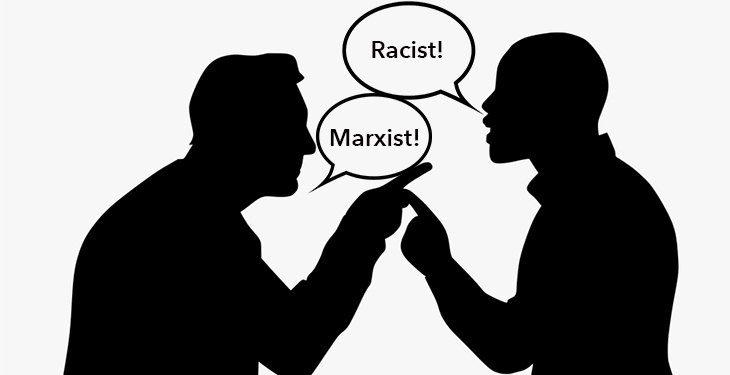Emotions are a natural part of the human life. We are, after all, created in the image of God who Scripture describes as jealous, angry, and loving. However, unleashing uncontrolled, unfiltered outbursts of emotion are not profitable when our goal is to communicate our beliefs and ideas.
It is natural and right to respond emotionally to the senseless, inhumane treatment and deaths of George Floyd, Ahmad Avery, and others. However, standing on a street corner, yelling and cursing that you want to do the same thing to police officers in a completely different city and state does nothing but hurt your cause! Responding by imposing a label upon them assures us of either 1) a total failure to communicate or 2) the need to invest significant time and energy to disarm the situation (time and energy that could have led to reconciliation).
Unfortunately, there are forces in the culture practically demanding we employ such epithets on any and all with whom we disagree on points major or minor. There are people on the left and the right who believe the use of labels demonstrates their fidelity to “the cause.” There are people urging others to do the same in “calling it like it is.”
While we may think we are standing for principle when we use such labels as racist, Marxist, Fascist, bigot, obstructionist, radical, wacko, or fence sitter, what we actually accomplish is destroying any opportunity to communicate. We put an end to any hope of convincing others of the validity of our belief/opinion. Worse, we may never have the opportunity to learn the friendship that may have developed with the other person.
The most important reason for us to avoid becoming a part of the cancel culture or the age of outrage is it is unscriptural. Much of the age of outrage and the culture of shame in which we live is born in bitterness. Paul wrote to the church of Ephesus, “Let all bitterness and wrath and anger and clamor and slander be put away from you, along with all malice.” (Eph 4:31 ESV) If we are a disciple of Jesus, we need to remind ourselves that we have put on Christ. Is Christ glorified when we hurl a label at another?
There is no problem in addressing sin where it exists. We should never become weak in upholding righteousness within the body of Christ. However, we have never been charged with creating shame in the life of others. We have been called to preach Christ crucified, but shame is the work of the Holy Spirit. We are to allow the Spirit of God to convict a person of sin in their life. When WE act to shame others, we likely push them further from the only hope that may free them from guilt and shame!
If we fall prey to labeling others, we guarantee a failure to communicate and may drive another away from the only real hope in life! Here is to listening clearly, avoiding labels, never shaming others, and proclaiming hope in Christ.
